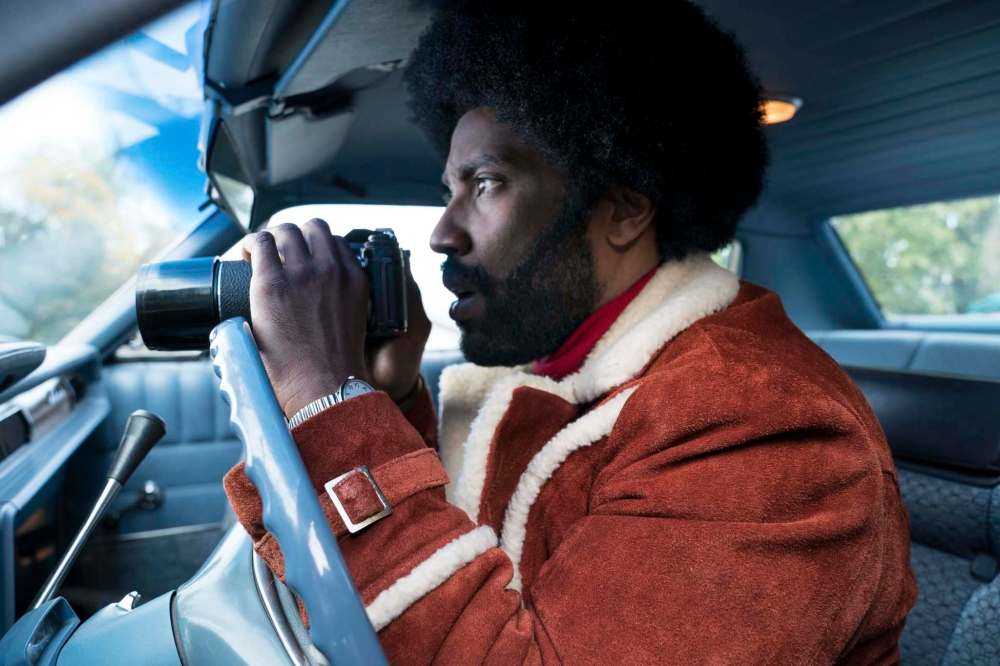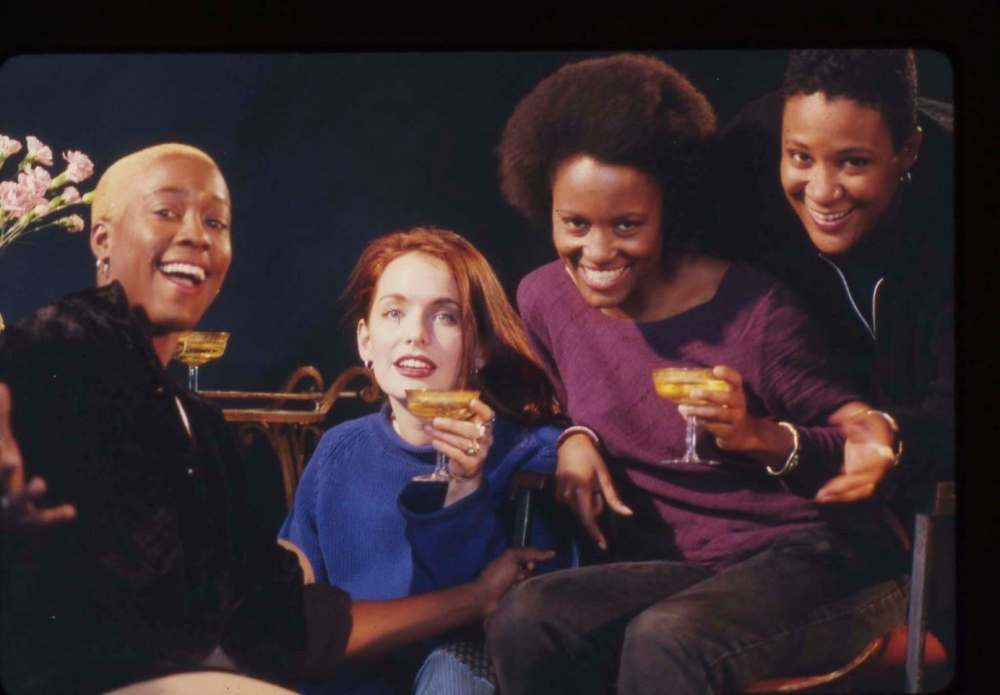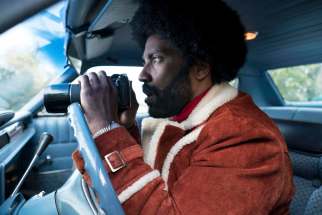Afro Prairie fest highlights best in black cinema Weeklong event features a dozen selections, crossing genres and borders
Read this article for free:
or
Already have an account? Log in here »
To continue reading, please subscribe:
Monthly Digital Subscription
$0 for the first 4 weeks*
- Enjoy unlimited reading on winnipegfreepress.com
- Read the E-Edition, our digital replica newspaper
- Access News Break, our award-winning app
- Play interactive puzzles
*No charge for 4 weeks then price increases to the regular rate of $19.00 plus GST every four weeks. Offer available to new and qualified returning subscribers only. Cancel any time.
Monthly Digital Subscription
$4.75/week*
- Enjoy unlimited reading on winnipegfreepress.com
- Read the E-Edition, our digital replica newspaper
- Access News Break, our award-winning app
- Play interactive puzzles
*Billed as $19 plus GST every four weeks. Cancel any time.
To continue reading, please subscribe:
Add Free Press access to your Brandon Sun subscription for only an additional
$1 for the first 4 weeks*
*Your next subscription payment will increase by $1.00 and you will be charged $16.99 plus GST for four weeks. After four weeks, your payment will increase to $23.99 plus GST every four weeks.
Read unlimited articles for free today:
or
Already have an account? Log in here »
Hey there, time traveller!
This article was published 21/02/2019 (2486 days ago), so information in it may no longer be current.
Organized by Blackspace Winnipeg in partnership with the Winnipeg Film Group, the second annual Afro Prairie Film Festival runs this week at Cinematheque.
With 10 features and two short programs screening until Sunday, the fest reaches across genres, combining classic and contemporary films and drawing on local, national and international directors.
Movie trailers
https://youtu.be/nCd-lX7eAw0:wfpyoutube
wfpyoutube:https://youtu.be/6B7U2PA0UyM
There’s a fast-paced comedy about hairdressing hustlers in a Parisian banlieue (La vie de château, tonight, 6 p.m.) and a low-key coming-of-age drama from Montreal filmmaker Darren Curtis (Boost, tonight, 8 p.m.), an affecting story of a shooting death in a multicultural Toronto neighbourhood from Caribbean British-Canadian director Frances-Anne Solomon (A Winter Tale, Sunday, 3 p.m.), as well as the latest from Oscar-nominated veteran Spike Lee (BlacKkKlansman, Saturday, 9 p.m.).
You can check out the full lineup at blackspacewpg.ca, but here are a few highlights:
● HALE COUNTY, THIS MORNING, THIS EVENING (Saturday, 7 p.m.): The Oscar-nominated Hale County is a quiet investigation into how we see each other. Director RaMell Ross, who started teaching photography in a poor, predominantly African-American county in rural Alabama, is aware that the documentary camera has often been used to objectify its subjects, especially those in marginalized groups.

Searching for a different way to represent black lives, Ross follows two young men over five years: Daniel, who heads to Selma University to play basketball, and Quincy, who has just become a father and works at a fish cannery to provide for his family.
This is an achingly specific picture of mundane moments and sudden sorrows, with long, patient scenes of young men shooting hoops or playing blues guitar, of a toddler tiring himself out, of kids just doing stuff in backyards and fields.
Ross also uses his camera to think about the documentary form. Hale County probably has more in common with the experimental drama Killer of Sheep, by influential African-American director Charles Burnett, than it does with standard docs. Ross avoids the common clichés of poverty porn, instead using a highly visual and deliberately non-narrative approach to build up the rhythms of the natural world and the emotional texture of a small community.
● BLACKKKLANSMAN (Saturday, 9 p.m.): Combining edgy farce with bursts of life-and-death seriousness, Spike Lee’s latest joint — up on Sunday night for six Oscars, including for best picture — is set in the supercool 1970s, where Ron Stallworth (John David Washington) has just become the first black officer on the Colorado Springs police force.

Ron is determined to infiltrate the local Ku Klux Klan. In this so-crazy-it-must-be-true storyline, Ron makes the initial undercover phone contacts with this hapless bunch of white supremacists but — for obvious reasons — recruits his colleague Flip Zimmerman (Adam Driver) to do the in-person meetings.
Lee brings his stylized esthetic and flair for genre-flipping to this kooky fact-based story. There’s deadpan office comedy here, along with crime-fighting shenanigans, a sweet romance, a sly re-examination of the “interracial buddy picture” and a whole lot of cutting social comment. And while Lee revels in the funky 1970s period details, he connects Stallworth’s story with current events — and the current American president — including a chilling epilogue that looks at the 2017 march on Charlottesville, Va., by an emboldened white-nationalist movement.
● THE WATERMELON WOMAN (Sunday, 5 p.m.): A re-release of American filmmaker Cheryl Dunye’s 1996 debut feature, this appealingly offbeat, comic and personal story starts with a familiar premise: a young filmmaker is making a film about trying to make a film.

Cheryl (played by Dunye) is a video-store clerk and sometime videographer in South Philadelphia who becomes obsessed with a 1930s film called Plantation Memories and a black actor listed in the credits as “the watermelon woman.” Cheryl’s attempt to track the actor down takes her through mainstream Hollywood history, where black characters were often limited to the smiling servitude of mammies and maids, as well as the alt history of “race films” with all-black casts.
Dunye uses her mock-documentary format to excavate the past — including the often-hidden layers of black history, women’s history and gay history — and to question how all these things relate to her complicated present. This includes her own work as a contemporary lesbian filmmaker and her tricky relationship with her white girlfriend Diana (Guinevere Turner).
The Watermelon Woman can be awkward and clunky, and its shoestring budget sometimes shows. But it’s also fresh and frequently very funny (as in one sequence where Cheryl tries to get archival material from a lesbian volunteer collective that makes lending decisions by consensus and only meets every other month).
There’s also a self-aware and oh-so-1990s appearance by contrarian scholar Camille Paglia, who hilariously Camille-splains the ways African-American scholars have misinterpreted the “mammy” character as demeaning when — according to Paglia — she’s actually a goddess figure.
https://youtu.be/uXRYhmx9AXo
alison.gillmor@freepress.mb.ca

Studying at the University of Winnipeg and later Toronto’s York University, Alison Gillmor planned to become an art historian. She ended up catching the journalism bug when she started as visual arts reviewer at the Winnipeg Free Press in 1992.
Our newsroom depends on a growing audience of readers to power our journalism. If you are not a paid reader, please consider becoming a subscriber.
Our newsroom depends on its audience of readers to power our journalism. Thank you for your support.











